FOREIGN COUNTRY
ANALYSIS: EU billions for Egypt are a gift to a dictator
The EU and Egypt have entered into a cooperation agreement, which means that over the next four years, the EU will send as much as DKK 55 billion to Egypt.
European Commission President Ursula von der Leyen and Egyptian President al-Sisi after reaching a major deal. (Photo: © STAVROS IOANNIDES, Ritzau Scanpix)
BY DR'SAFRICA CORRESPONDENTSøren Bendixen
Edited by Morten Top
ANALYSE EU’s milliarder til Egypten er en gave til en diktator | Udland | DR
Egypt's President al-Sisi has received a nice gift.
In December was re-elected with a whopping 89 percent of the vote. An achievement that not even Vladimir Putin could emulate in this weekend's elections in Russia.
The elections were supposed to look like democratic elections, but Egypt can best be described as a highly authoritarian country with major human rights abuses and with a president who does not tolerate criticism and who effectively puts a lid on any opposition.
The reward came in the form of a second term as president of the strategically important country, and instead of condemnation for ignoring democratic rights, the EU has now also rewarded him with a fine deal.
President al-Sisi has good reason to smile about the new agreement with the EU. (Photo: © -, Ritzau Scanpix)
Balancing between Russia and the West
Egypt is a huge country with one leg in the Middle East and one in Africa. With more than 100 million people living in the country, Egypt is a huge regional player. This applies very much to migratory movements.
Egypt has previously been a major supplier of illegal migrants to Europe until an agreement was reached in 2022 on better border controls. It worked to a certain extent, and the European Union will do a lot to maintain those achievements.
At the same time, there is a very significant element of geopolitics involved, because if the legs are in the Middle East and Africa, respectively, then you could perhaps say that the right arm points to the west and the left to Russia.
Egypt has close relations with Russia. Among other things, the Russians are building Egypt's first nuclear power plant. Here al-Sisi and Putin met in Saint Petersburg last summer. (Photo: © SPUTNIK, Ritzau Scanpix)
Egypt is successfully trying to keep its tongue straight when it comes to maintaining good relations with both Russia and the West.
Russia and Egypt have a long and friendly relationship. Among other things, Egypt has had a great appetite for Russian wheat and at the same time happily welcomed thousands of Russian tourists who have filled up well on the Red Sea.
Tourism is a very important source of income for Egypt, and Russia accounts for 40 percent. Russia is also building Egypt's first nuclear power plant and has huge arms exports to Egypt.
Good for borrowing money
The agreement comes at a good time for both the EU and Egypt. Although Al-Sisi has just secured another term as president, he is under pressure from a really bad economy.
Inflation is around 30 percent, and several observers believe that more than half of the population lives below the poverty line.
Throughout his ministry, the president has been very good at borrowing money, and he has been forced to borrow more and more to ensure some kind of stability.
The major signs of crisis have certainly been assessed in Brussels, where the thought of an economic collapse in a country of more than 100 million inhabitants so close to Europe is a frightening thought.
The Rafah border crossing is the only one into Gaza that does not pass through Israel. The tent on one side of the fence belongs to displaced Palestinians. On the other side of the fence is Egypt. (Photo: © ABED RAHIM KHATIB, Abed Rahim Khatib/picture-alliance/dpa/AP Images)
At the same time, people look with great nervousness at what is happening at both the northern and southern borders. To the north, Egypt is the only access to Gaza, and to the south lies Sudan, which for 11 months has been plunged into a civil war that has sent up to ten million fleeing.
Both are things that could potentially further increase the search for Europe.
The EU wants to avoid migration flows
Over the weekend, European Commission President Ursuala von der Leyen and a large delegation visited al-Sisi at his presidential palace in Egypt's capital, Cairo.
And there were smiles across the board when the DKK 55 billion deal was announced. The watchwords were political relations, economic stability, investment and migration.
The EU will go to great lengths to ensure that Egypt does not send hundreds of thousands of illegal migrants either directly across the Mediterranean from Egypt or by allowing Egyptians, Sudanese and other East African nationalities to travel further into Libya, and from there on to Europe.
For al-Sisi, it is about putting money in the coffers so that the population can be kept reasonably full and satisfied.
Al-Sisi has hardly forgotten the images of the popular uprising in Cairo's Tahrir Square and the revolution that toppled President Mubarak in 2011. (Photo: © KHALED ELFIQI, Scanpix Denmark)
In 2011, when high inflation, corruption, low wages and lack of democracy recently became too much for the population, it led to revolution, and then-President Mubarak ended up in prison.
That was only 13 years ago, and a few years later, al-Sisi was able to take power in Egypt. So he clearly remembers what can happen when people have enough of a dictator.
Results 1 to 3 of 3
Thread: A Gift to a Dictator
Threaded View
-
19-03-2024, 02:17 AM #1
A Gift to a Dictator
Thread Information
Users Browsing this Thread
There are currently 1 users browsing this thread. (0 members and 1 guests)






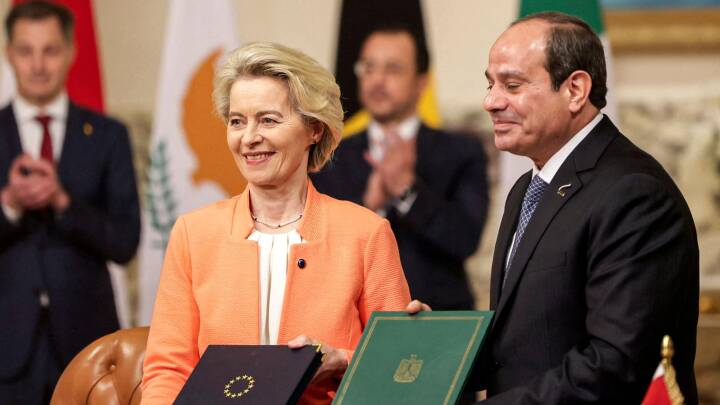
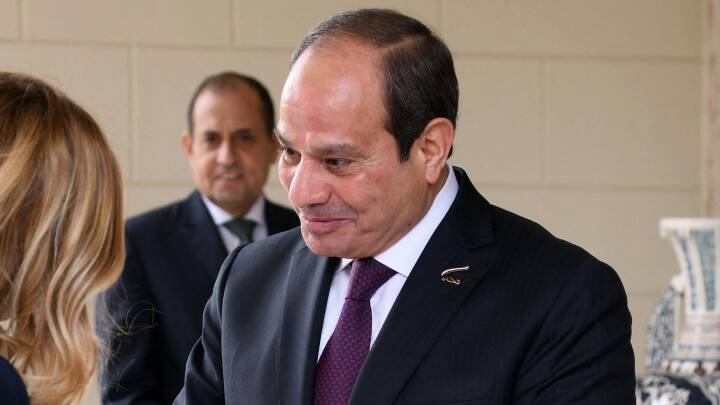
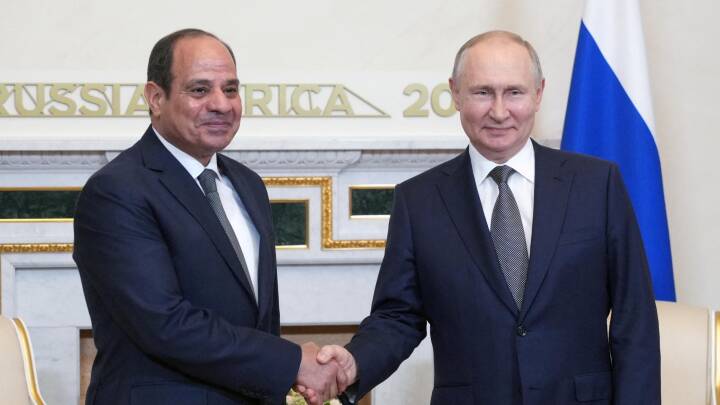
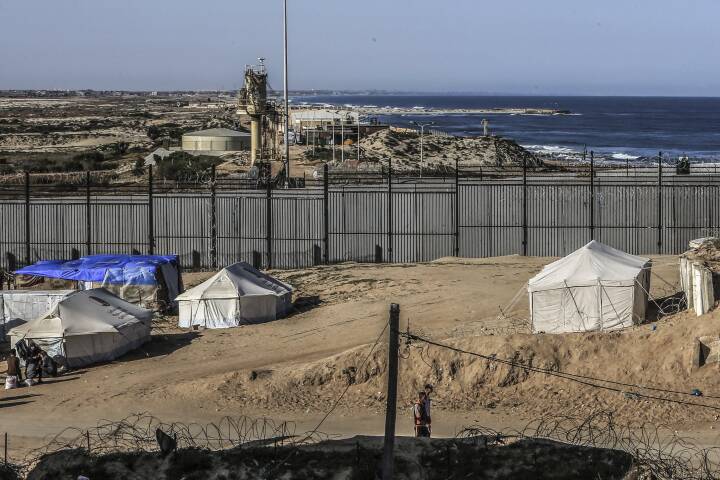
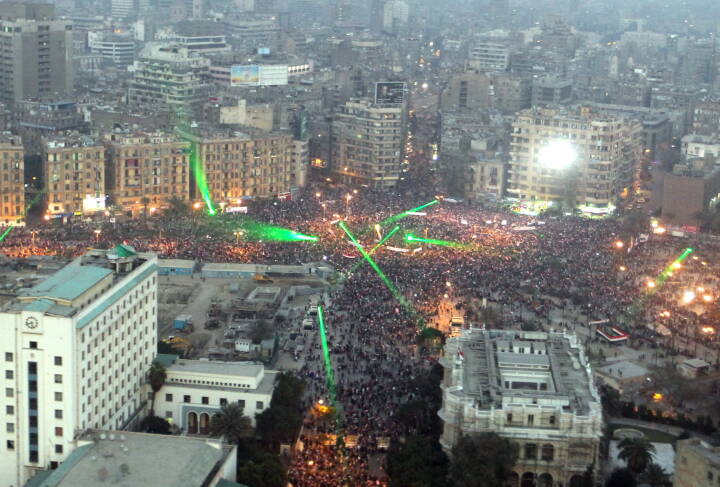

 Reply With Quote
Reply With Quote